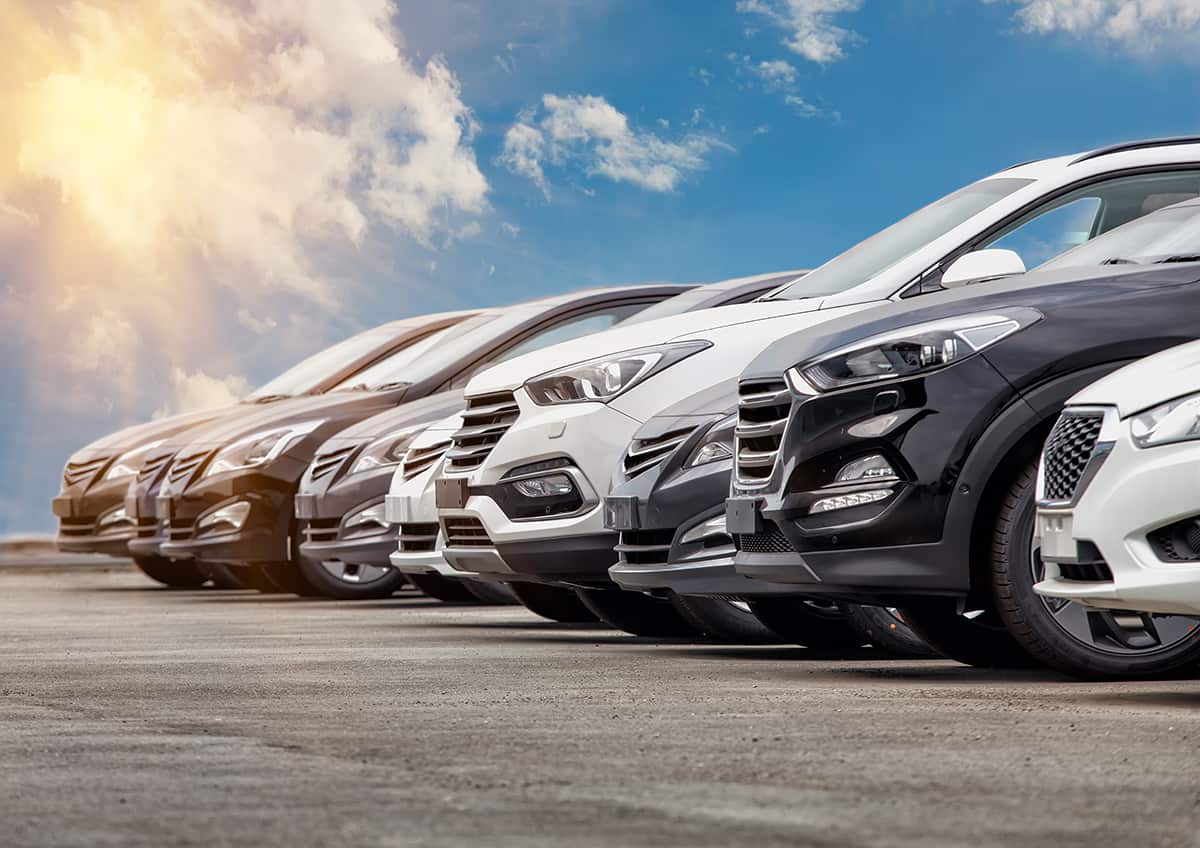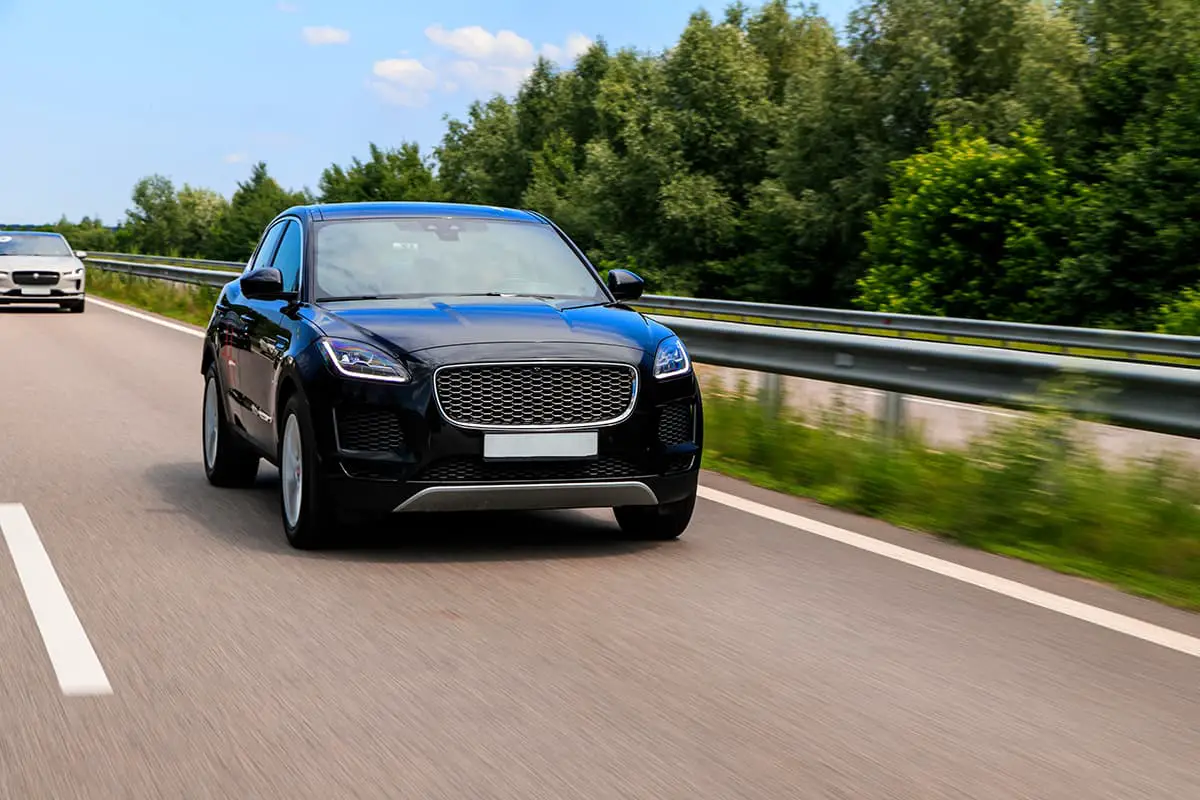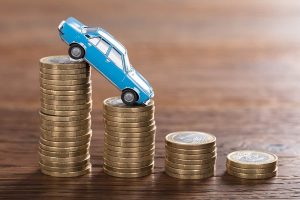Car horsepower, a term we often hear when discussing vehicles, has a considerable impact on the car’s performance. As cars have evolved over the years, so has the average horsepower.
The average horsepower of a car ranges from 180 to 200. However, different car types will have different averages and ranges.
- Sedans have horsepower in the range of 120-220
- Sports cars typically feature 300-700 horsepower
- SUVs generally possess around 200-300 horsepower
- Electric cars can vary widely, with figures spanning 150-400 horsepower
In this guide, we’ll learn about the minute details of car horsepower. We’ll also explore how it varies between different car types and its impact on car performance.
Basics of Horsepower

Coined by the mechanical engineer James Watt, the term “horsepower” was originally intended to communicate the power of steam engines to potential customers. Today, it remains a standard measure of a car’s power output.
Horsepower (HP) quantifies the rate at which work is done or energy is transferred. In automotive terms, it’s a measure of how quickly a car can use energy to perform work, directly influencing the car’s speed and capacity to pull weight.
The most common form of horsepower we encounter in cars is brake horsepower (BHP), which is the amount of power a car’s engine produces before the loss in power caused by other parts of the car, such as the gearbox, alternator, and other auxiliary components.
Horsepower and Car Performance
The horsepower of a car significantly impacts its performance in various aspects. As such, you need to carefully consider the HP when choosing a car based on your driving needs and preferences.
1. Horsepower and Speed
Cars with higher horsepower can typically reach higher speeds faster than those with lower horsepower. This is because a higher horsepower means the engine can perform more work over a given amount of time. However, speed doesn’t rely solely on horsepower. The car’s weight, aerodynamics, and transmission also play a crucial role.
2. Horsepower and Fuel Efficiency
Today’s modern engines are designed to be efficient, even at high horsepower. Factors such as how the car is driven and the engine’s design and technology significantly affect fuel efficiency. However, a high-horsepower car can consume more fuel if frequently driven at high speeds, as the engine works harder to deliver the required power.
3. Horsepower and Towing Capacity
More horsepower allows a vehicle to pull heavier loads. However, while horsepower influences how fast a vehicle can tow a load, torque determines the maximum weight it can pull. For tasks such as towing trailers or climbing steep hills, a vehicle with a strong combination of horsepower and torque is necessary.
A Look into Average Car Horsepower
The average horsepower of cars has been steadily increasing over the years, thanks to advancements in technology and changing consumer demands.
How is Average Car Horsepower Calculated?
Average car horsepower is calculated based on the power output of a large sample of vehicles. It considers various car types, models, and makes, and their corresponding horsepower ratings. The horsepower of all vehicles in the sample is added together and then divided by the total number of vehicles to determine the average.
This calculation provides a general idea of the power one can expect from a typical car.
Evolution of Average Car Horsepower Over the Years
Over the years, the average horsepower of cars has seen a significant increase. In the 1970s, a typical family car may have had less than 100 horsepower. With advancements in engine design, fuel technology, and emission regulations, today’s average family car can easily boast over 200 horsepower.
The Impact of Technology on Average Car Horsepower
Modern innovations have allowed car manufacturers to develop engines that are more powerful and efficient.
- Fuel Injection Systems: Modern fuel injection systems allow for more precise control of fuel-air mixture, enabling engines to produce more power while maintaining fuel efficiency.
- Turbocharging and Supercharging: These technologies increase the amount of air entering the engine, allowing more fuel to be burned and thereby increasing horsepower.
- Computerized Engine Management Systems: These systems optimize engine performance by controlling various parameters, such as fuel-air mixture and ignition timing, leading to increased horsepower.
- Materials and Design: The use of lighter, stronger materials and more efficient engine designs have increased horsepower while reducing engine weight.
Breakdown by Car Types

Horsepower varies significantly across different car types. From compact sedans to roaring sports cars, the horsepower of a car is closely tied to its purpose and performance characteristics.
1. Sedans
Sedans are often the go-to choice for many drivers, offering a mix of comfort, fuel efficiency, and enough horsepower for daily commuting. On average, sedans feature a horsepower range of 120-220. Family sedans tend to be on the lower end of this spectrum, with luxury sedans and performance variants offering more horsepower for enhanced acceleration and driving pleasure.
2. SUVs
SUVs, known for their versatility and off-roading capabilities, generally have higher horsepower than sedans. This increased power aids in hauling heavier loads and navigating tough terrain. The average horsepower for SUVs is typically around 200 to 300. However, high-performance SUVs and luxury models can go well beyond these numbers.
3. Sports Cars
Sports cars are where horsepower really shines. With the primary goal of delivering thrilling performance and speed, sports cars usually boast high horsepower figures, typically ranging from 300 to 700, and even more in supercar territory. These high-powered machines offer exhilarating acceleration and high top speeds, making them a favorite among automotive enthusiasts.
4. Trucks
Pickup trucks are designed for heavy-duty tasks such as towing and hauling, requiring higher horsepower. They generally offer between 200 and 400 horsepower, with heavy-duty trucks and performance variants reaching even higher. More horsepower allows trucks to handle heavier payloads and tow larger trailers.
5. Electric Cars
Electric cars represent a new frontier in automotive horsepower. As electric motors can produce a lot of torque instantly, electric cars can deliver impressive horsepower figures and acceleration times. On average, electric cars range between 150 and 400 horsepower. However, high-performance electric cars can reach well above these numbers, with some even surpassing traditional supercars.
FAQs
1. What is a good average horsepower for a car?
For everyday commuting, a sedan with 120-220 horsepower is usually more than sufficient. For those who frequently travel with heavy loads or need to tow trailers, an SUV or pickup truck with a horsepower range of 200-400 could be a better fit. Performance and sports car enthusiasts might prefer vehicles that boast horsepower well above 300 for an exhilarating driving experience.
2. Can increasing horsepower damage my car?
Excessive horsepower can strain the car’s components, causing them to wear out faster. It can put additional stress on the engine, transmission, brakes, and tires, leading to more frequent repairs and maintenance. Some modifications that increase horsepower may void the manufacturer’s warranty.
3. What’s the significance of horsepower in electric cars?
Horsepower in electric cars is significant because it directly influences the car’s acceleration and overall performance. Electric motors are capable of delivering all their torque instantly, which allows electric cars to accelerate rapidly. High horsepower in electric vehicles can translate into impressive acceleration times and, in some cases, speed.
However, this doesn’t mean electric cars with lower horsepower are sluggish. Even electric cars with modest horsepower ratings can offer peppy performance due to the characteristics of electric motors.
Ultimately, just as with traditional cars, the “right” horsepower for an electric car depends on a driver’s individual needs and preferences.







